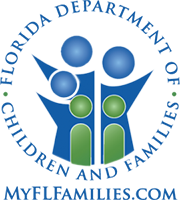How Alcohol Affects the Brain
Our brains are powerful vessel that regulates and coordinates everything we do. The neurotransmitters in our brain rely on signals to function appropriately and keep us happy and healthy. Many things can affect these neurotransmitters and disrupt how we think and feel. Alcohol is one of those. Alcohol is a depressant and when consumed, it negatively impacts our brain’s ability to send and receive important signals. While drinking can temporarily make us feel good or more confident, over time, the depressant properties of alcohol can increase the risk of developing mental health conditions and other health issues.
Signs of Alcohol Addiction
Due to alcohol being a mostly legally obtained substance, it can be difficult to determine if you or a loved one have an addiction to alcohol. However, the American Psychiatric Association has identified criteria that addiction and mental health professionals use to make an official diagnosis. According to the APA, if a person has displayed two or more of these criteria in the last year they would be identified as having Alcohol Use Disorder:
- Engaging in drinking has negatively impacted the ability to take care of family or other responsibilities
- Frequently finding yourself in dangerous situations, such as drinking and driving
- Continued drinking despite issues it has caused in your life
- Developing a tolerance to drinking and need to drink more to obtain the same buzz
- Experiencing withdrawal symptoms when not drinking, such as elevated heart rate, shakiness, or inability to sleep
- Inability to quit drinking despite the desire to quit
- Loss of interest in things that were once important
- Continuing to drink despite it negatively affecting your mood
Co-Occurring Disorders and Alcohol Use
Co-occurring disorders refer to the diagnosis of a mental health condition in addition to addiction. Co-occurring disorders are common because of the way both addiction and mental illness disrupt the brain’s normal functioning. Some of the most commonly seen co-occurring disorders include:
- Anxiety–Drinking can make us feel uninhibited and more confident, making socializing less intimidating for people prone to anxiety.
- Depression–Drinking, and depression affect the neurotransmitters responsible for happiness so it can be hard to tell if drinking is causing you to feel sad or if it is because of depression, however, there is a clear correlation between drinking and depressive symptoms.
- Self-harm and Suicidal Thoughts–Drinking causes us to act impulsively at times and may contribute to acting on suicidal or self-harm thoughts.
Dual Diagnosis Treatment for Alcohol Addiction
Treating both co-occurring disorders and alcohol use is imperative in addiction treatment. Mental health conditions are risk factors for addictions, and vice versa, so to have the best success in recovery, it is important to address both. Addiction treatment focuses on treating your emotional and physical health because the disease of addiction impacts both. Through intensive therapies, you will identify the root causes of your addiction and begin to process them so you can learn healthy ways to cope with emotional distress. Medication-Assisted Treatment (MAT) combines behavioral and emotional therapies with medications that can decrease cravings and promote normal brain functioning. MAT has been shown to be very effective in the treatment of dual diagnoses because it allows people to focus on addiction treatment instead of cravings they may be experiencing. Traumatic life events also contribute to both addiction and mental illness, so trauma therapies play a big role in addiction treatment as well.
Alcohol Addiction and Mental Health Support at The Source
Employees at The Source have a passion for helping those struggling with addiction, overcome the pain and frustration that addiction brings with it and learn to live a life they love. Many of their employees are in recovery as well so they have a unique understanding and passion for what they do. The Source specializes in the dual diagnosis treatment and offers leading-edge trauma therapies to help you quickly and effectively heal from trauma. To find out more about how The Source can help treat co-occurring disorders, please call (800)204-0418 or visit them online at www.thesourcetreatmentcenter.com.

 The Source quite frankly saved my life and got me back on track, never giving giving up on me. When you are thinking about and looking through all of the different places to go for treatment this is the one that should stand out from the rest.
The Source quite frankly saved my life and got me back on track, never giving giving up on me. When you are thinking about and looking through all of the different places to go for treatment this is the one that should stand out from the rest.




























